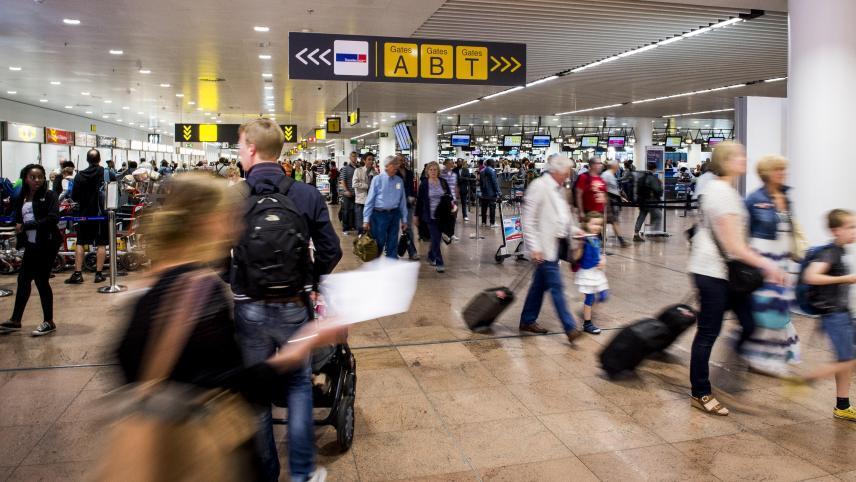The Omicron coronavirus variant poses a "very high" global risk for which countries must be well-prepared, said the World Health Organisation (WHO) in a press briefing on Monday.
The new variant, which prompted border closures and tight travel restrictions in many countries last weekend, is likely to spread internationally, the WHO said.
"Omicron has an unprecedented number of spike mutations, some of which are concerning because of their potential impact on the trajectory of the pandemic," the WHO said. "The overall global risk related to the new variant is assessed as very high."
Outbreaks of the new variant can have "major consequences," the organisation said, while also stressing the many uncertainties that still exist regarding the danger and infectiousness of the variant.
The WHO advised countries to speed up the vaccination process in order to protect more people from the virus. It expects that vaccinated people can still become ill with the new variant but that the course of the disease will be less severe, as with older variants.
"To date, no deaths have been reported that can be linked to the new variant," it said.
However, "increasing cases, regardless of a change in severity, may pose overwhelming demands on health care systems and may lead to increased morbidity and mortality. The impact on vulnerable populations would be substantial, particularly in countries with low vaccination coverage."
At least one case in Belgium
On 24 November, the variant (labelled B.1.1.529) was first reported to the WHO by South Africa and is raising concerns across the world, prompting numerous restrictions and entry bans for those travelling from the country, including by Belgium.
So far, one confirmed infection with the Omicron variant has been identified in Belgium, in an unvaccinated traveller returning from Egypt who experienced the first symptoms on Monday 22 November.
However, vaccinologist Pierre Van Damme told Het Laatste Nieuws that the number of people in Belgium infected with the variant is likely greater than that.
"It will be circulating a bit by now, you see that in other countries too," he said, referring to the UK, Germany, the Czech Republic, Italy and the Netherlands.
Related News
- Belgium imposes entry ban on travellers from southern Africa
- Efficacy of vaccines against new variant known in a few weeks, virologist says
- Closing borders and new travel restrictions: Countries react to Omicron variant
"That is not surprising, the variant will be able to circulate under the radar for a while. But we are buying some time to find out more about this virus," Van Damme said, adding that "panic is not necessary."
Belgium's current measures – namely ventilating indoor spaces, wearing face masks, social distancing, and limiting contacts – should be "sufficient" to reduce the chances of spreading the coronavirus. "That will have an effect, not just on the Delta variant, but on all variants."
Likely less dangerous than Delta variant
South Africa is reporting that people infected with the Omicron variant seem to have milder complaints than with the Delta variant, but about two more weeks of research will be needed to know more about the course of the disease and the vaccines' effectiveness against it, experts say.
"The Omicron variant is said to be more infectious. In any case, it replaces the Delta variant, which is already highly infectious, in a region of South Africa," virologist Marc Van Ranst told Het Laatste Nieuws.
"But in South Africa, they also say that the Omicron variant is less dangerous. Hopefully, that is true," he added. "Then you have a variant that makes people less sick, but you can still get immunity. That is a good thing."
Yet, Van Ranst remained very cautious: "if you compare the population structure of South Africa to that of Belgium, it is very different. We have a lot of elderly people here. It remains to be seen how this variant behaves in our population."

